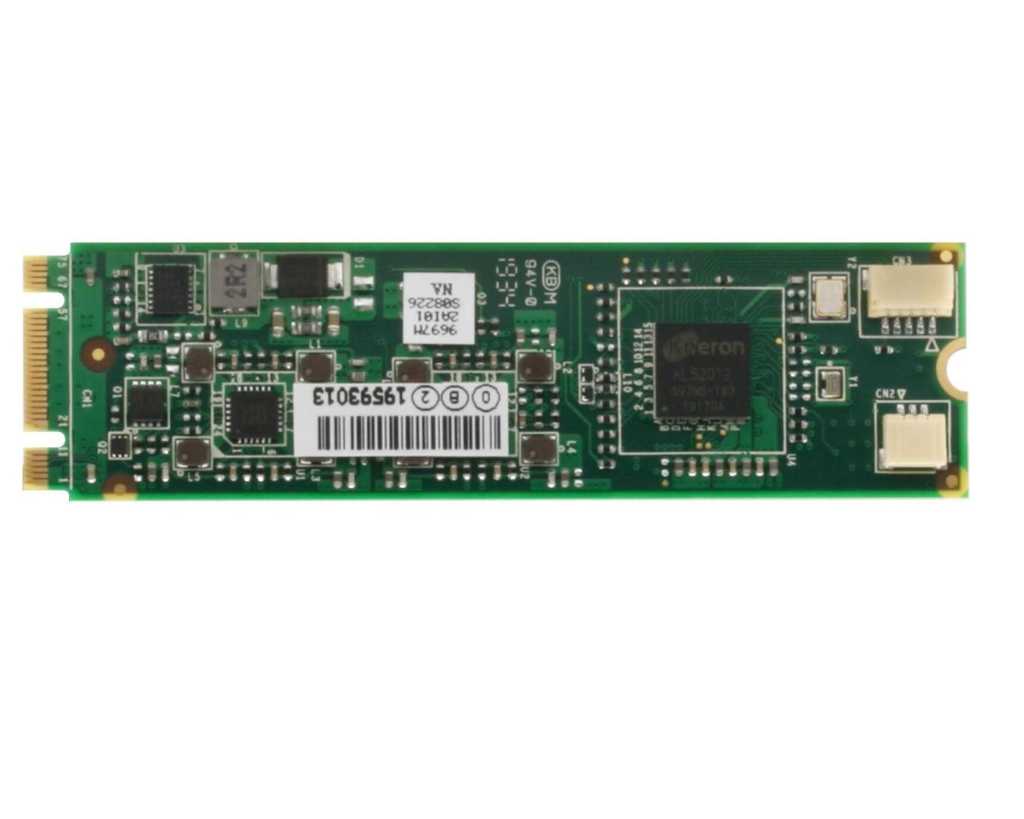Kneron Reveals First Customers and Teases Next-Gen AI Chip
Article By : Sally Ward-Foxton

The AI edge chip startup is already making revenue
Kneron, the San Diego and Taipei-based AI algorithm, core IP and fabless chip company, is working with industrial PC manufacturer Aaeon to create an AI accelerator card for edge applications based on the company’s first chip, the KL520. The M2AI-2280-520 card will accelerate AI models in IoT, smart home, security and mobile devices.
Aaeon is the first company to announce it is using the KL520, while Kneron has previously announced customer wins for its facial recognition model, including systems integrator TIIS, which has built it into a security system for the public banks of Taiwan. Company sources said that Kneron made around $5 million in revenue in 2019, a stark contrast to many edge AI chip companies who are not yet market-ready.
“Aaeon has used our chip and put it into a form factor that’s easy to insert into a pre-exisiting design,” said Kneron chief commercial officer Adrian Ong.
“We have other customers in the commercialisation phase,” he added.
The company has a strong focus on AI at the edge and is targeting inference in computer vision applications that require low latency and low power, such as smart door locks.
The flagship chip KL520, launched in May 2019, is optimised for image processing models based on convolutional neural networks (CNNs), including but not limited to Kneron’s own models for facial recognition. The KL520 runs 0.3 TOPS at 0.5 W (equivalent to 0.6 TOPS/W).
Kneron also has its own neural processing unit (NPU) IP, neural network models for image processing, and a corresponding toolchain.

Aaeon’s M2AI-2280-520 is an accelerator module for edge applications based on Kneron’s KL520 accelerator chip (Image: Kneron)
“We started out developing models for face recognition, face detection and object detection,” Ong said. “But because [a lot of us] had a silicon background, we decided to develop our own IP and our own chips as well.”
Kneron’s uses a reconfigurable chip architecture to tailor its silicon to specific models, aided by a compiler which allocates resources efficiently so the hardware can be best utilised to run the models. The compiler also uses compression techniques which Ong claimed can significantly reduce the size of the models to allow them to run in resource-constrained environments to save power and cost.
Kneron’s facial recognition model was previously recognised by NIST (the National Institute of Standards and Technology) as the best performing model under 100MB.
“In fact, the model is 57 MB,” Ong said. “It even outperformed competitors’ models that were bigger than 1 GB. For embedded applications, it can be compressed even further, down to 32 or even 16 MB.”
Kneron was founded in 2015, with its 110 employees based at headquarters in San Diego, a development office in Taiwan and a sales office in Shenzhen. It is backed by Horizons Ventures, Alibaba Entrepreneurs Fund, Qualcomm and Sequoia Capital, amongst others.
“The strength of the company is image processing, but we recognise that over time people are going to want to add audio capability as well, so we are developing IP for that,” Ong said.
Kneron’s second generation chip will be able to accelerate both CNNs and RNNs (recurrent neural networks), for vision and audio applications. Samples of the second generation chip are due in Q1-2020.